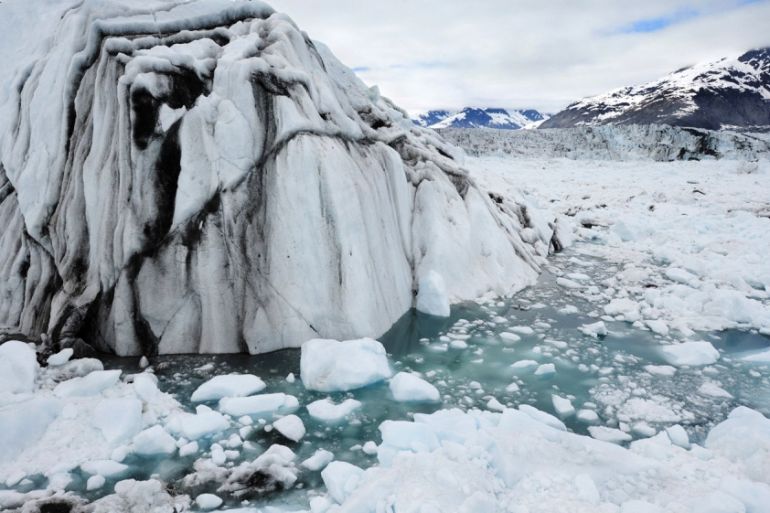Ban Ki-moon warns extreme weather becoming new normal
UN secretary general warns nations to transform the global economy for low-emissions growth – or else.

Time is running out for humanity to tackle rapid climate change that is threatening to make extreme weather the new normal, the UN’s general-secretary said.
In a message to mark World Meteorological Day on Wednesday, Ban Ki-moon warned that the window of opportunity for meeting the temperature goal agreed upon by nations in Paris last December was “narrow and rapidly shrinking”.
Keep reading
list of 4 itemsAsia bears biggest climate-change brunt amid extreme weather: WMO
Photos: Highest-level rainstorm warning issued in south China’s Guangdong
Europe endured record number of ‘extreme heat stress’ days in 2023
“Climate change is accelerating at an alarming rate,” said Ban. “The effects of a warming planet will be felt by all. Sea levels are rising and extreme weather is becoming the new normal.”
|
|
| Climate change a key matter in Philippines elections |
Earlier this week, the World Meteorological Organization confirmed that temperatures in 2015 were about 1C above the pre-industrial era for the first time on record.
The record temperatures over both land and the ocean surface in 2015 – due to an exceptionally strong El Nino weather phenomenon and global warming caused by greenhouse gases – were accompanied by many extreme weather events such as heatwaves, flooding, and severe drought, the agency said.
“The world must act now to transform the global economy for low-emissions growth and to strengthen resilience to the inevitable changes to come, especially in less well-developed countries,” Ban said.
February 2016 was the warmest month ever recorded, but it was also the warmest by an extremely large margin.
February was 1.35C above the long-term average. October 2015 was the first month since records began in 1880 that had been more than 1.0C above that average.
The +1.35 margin was 0.2C above the previous record set in January – meaning two huge, successive record-breaking months out of a record of more than 1,600 months of data.
READ MORE: UN climate change deal too little too late?
Scientists released a report earlier this week saying the rate of carbon emissions being pumped into the atmosphere is higher than at any time in fossil records stretching back 66 million years – to the age of the dinosaurs.
UN studies project that temperatures could rise by up to 4.8C this century, causing massive floods, deadly droughts, and more powerful storms if emissions rise unchecked.
|
|
| UpFront – ‘To avoid climate change, we need system change’ |